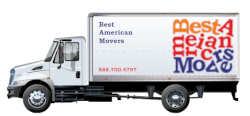California Movers
The best moving & storage services in the California



Neighborhoods We Cover
Here are all the neighborhoods we cover in California:
Frequently Asked Questions
Choosing between a nationwide moving company and a local mover depends on various factors, including the scope of your move, budget, and specific needs.
Nationwide Moving Companies:
-
Pros:
- Experience and Resources: National companies like United Van Lines and Mayflower often have extensive experience and resources for handling large and long-distance moves.
- Standardized Services: They typically offer a range of standardized services and have established protocols for ensuring a smooth moving process
- Insurance and Valuation Protection: They generally provide robust insurance and valuation protection options.
-
Cons:
- Cost: Nationwide companies can be more expensive, especially for long-distance moves, due to their larger overhead and standardized pricing.
- Personalization: You might experience less personalized service compared to local companies.
Local Moving Companies:
-
Pros:
- Cost-Effective: Local movers are often more affordable, especially for short-distance moves. They may offer more competitive pricing and flexible terms.
- Personalized Service: Local companies may provide more personalized and attentive service, as they often have a smaller, more dedicated team.
- Community Knowledge: They have better knowledge of local regulations and logistics, which can be advantageous for moves within the same city or state.
-
Cons:
- Limited Resources: Local movers might have fewer resources and equipment for handling very large or complex moves.
- Varied Quality: The quality of service can vary significantly among local companies, so it’s crucial to check reviews and verify their credentials
Choosing the Right Option:
Evaluate your specific needs, budget, and preferences when making your decision. It’s always a good idea to get quotes from both types of companies and compare their services and reviews before making a final choice.
This is an important question to discuss with your moving company representative. Top-rated full-service movers offer a range of services that can significantly impact your overall moving costs. Typical standard services include:
- Blanket pad wrapping: Protects furniture and other items from damage during transit.
- Disassembly and reassembly of furniture: Includes taking apart and reassembling large pieces of furniture.
- Basic valuation protection: Provides coverage at 60 cents per pound per article
- 30 days of storage: Available while items are in transit.
Typical Additional Services:
- Non-reusable packing supplies: Includes tape, boxes, cardboard, mattress covers, shrink wrap, and wood crates. These are generally charged separately.
- Stairs: Most companies do not charge for the first flight or 7 steps of stairs. However, anything beyond that is typically charged at $75 per additional flight (7 steps).
- Long carry: The first 75 feet from the truck to the front door or apartment are usually free. Every additional 75 feet may be charged at $75.
- Elevators: Local moves often do not incur elevator fees, but long-distance moves might include a $75 elevator fee to cover additional labor time.
- Suttle service: Used when a semi-truck cannot access the property, requiring a smaller truck for transport. Common in big cities or restricted areas, shuttles are typically charged at $1 per cubic foot (CF), with a minimum charge of $350.
- Bulky fees and special handling: Applies to oversized items such as lawn mowers, pianos, jacuzzis, hot tubs, toolboxes, and safes.
- Insurance: Basic valuation protection, which is included as per federal regulations, covers 60 cents per pound per article. However, this may not be sufficient to cover potential losses. Even with careful packing, risks such as accidents, weather conditions, and vibrations can occur during transit. It’s important to evaluate these risks and consider additional coverage. You can either enhance your homeowner's or rental policy or obtain additional coverage through a third-party insurer like Bakers International or similar.

